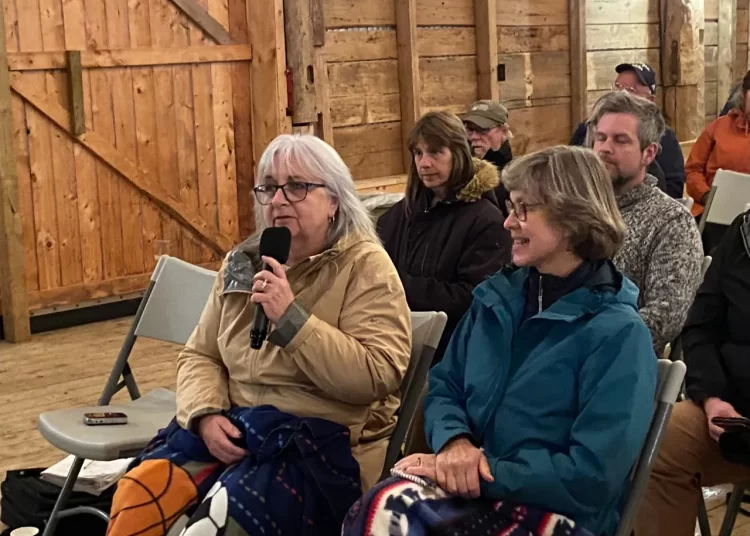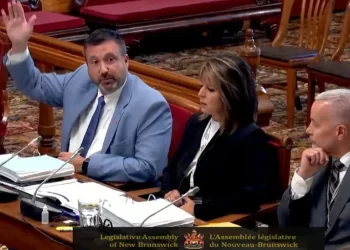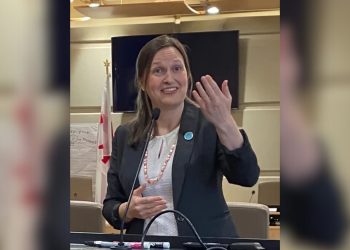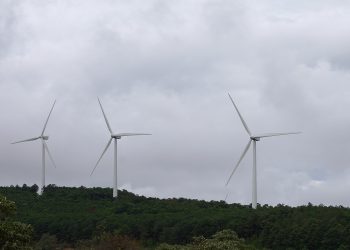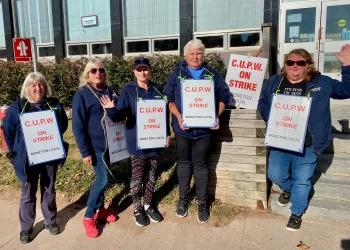Fears and concerns about the proposed 500 MW gas/diesel plant on the Chignecto Isthmus dominated a community feedback session that the town of Tantramar held Thursday at the Music Barn in Upper Sackville, a location that is only a few kilometres away from where the American company PROENERGY has been punching an access road through the woods to get to the gas plant site.
“Can somebody explain why putting 10 diesel generators and natural gas generators in the middle of an ecosystem is going to help us with the economy other than as a tax draw, a couple of years of local employment and then on top of all that, what are we doing with all the greenhouse gases we’re going to be producing every year?” asked Terry Jones, one of the local organizers of the Stop the Tantramar Gas Plant Group.
Jones, whose property would be the closest one to the proposed gas plant, also expressed concerns about the wastewater effluent that the plant would discharge into the local environment.
“I’ve got a gas plant in my backyard, which means my property value is going down,” she said, “but my property assessment is not going to go down based on this disaster that’s going to be pouring shit into my property.”
Tantramar Chief Administrative Officer Jennifer Borne, who was the host at last night’s meeting, said she knew concerns over the gas plant would come up there.
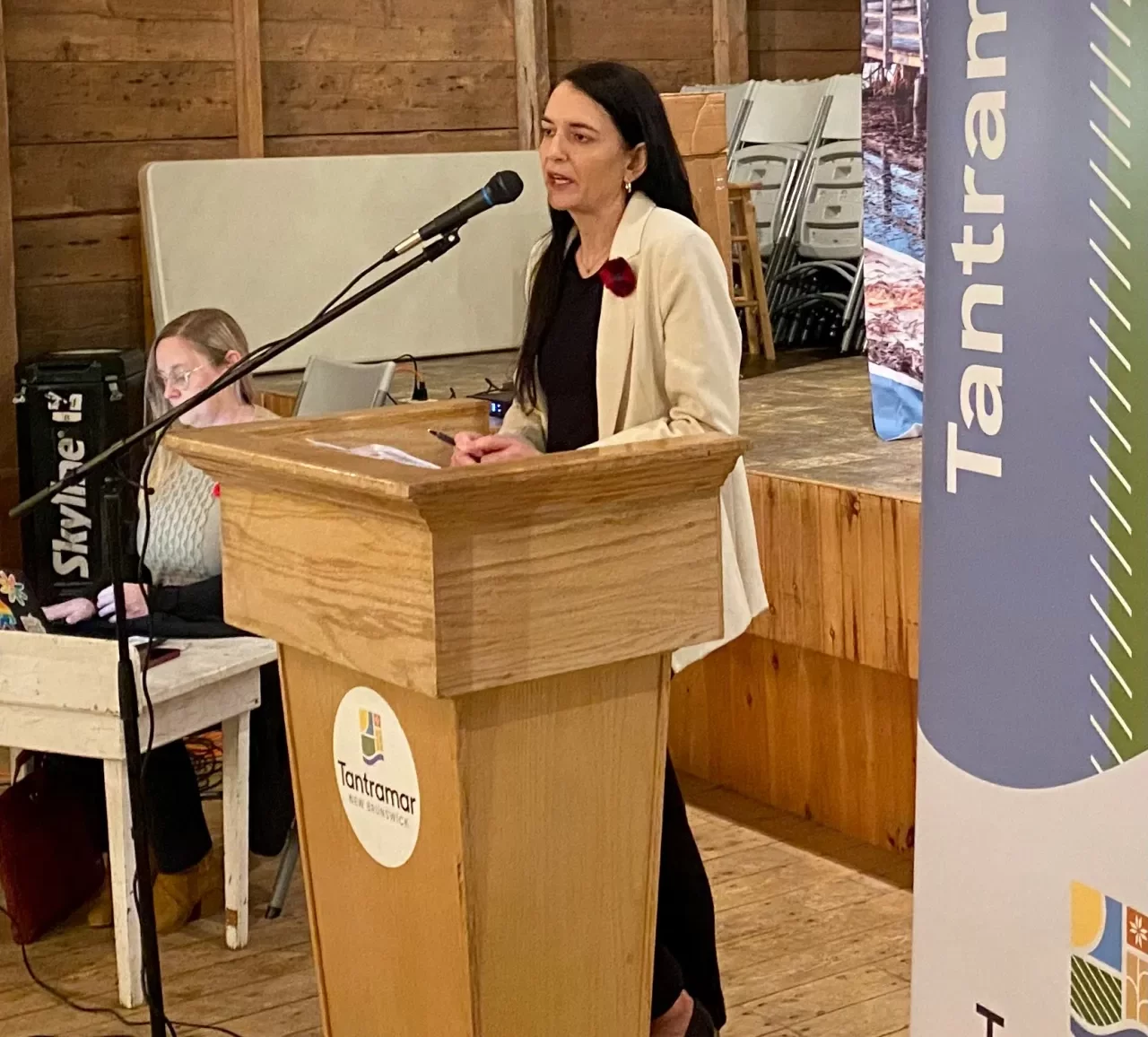
“A lot of your questions are best directed toward provincial authorities and higher authorities,” she said, adding that municipal administrators don’t have influence with higher levels of government.
Borne said the town is trying to arrange for NB Power to make a presentation to council while the municipality’s Climate Change Advisory Committee is also hoping to moderate a session with NB Power where the public would be able to ask questions.
Coalition organizer Juliette Bulmer asked about the potential effects on groundwater supplies since the gas plant could use up to seven million litres of water per day when it is operating at peak capacity.
“We’ve just gone through a drought. Lots of people have already had problems with their wells and farmers too,” she said.
“Does Tantramar have a water management plan to protect the quality and quantity of water?”
Borne replied that the town has been working with Veolia, the company that manages its municipal water systems and has been in constant contact with the province over issues of water supply during the drought.
“But the thing is, do you have a water management plan?” Bulmer asked, “because if there is no opposition strong enough to stop this gas plant, they will literally suck the water out of the land. They will. It’s not a matter of if or when, but they will. So you need a plan.”
“So anything like that, you know, we are certainly even as we build for responsible growth within Tantramar, we are looking at system capacity with any of our systems that we manage through engineering and public works,” Borne answered. “So certainly a piece to consider and criteria to have within those assessment plans.”
“So the question is, can you guarantee that we will have water in our wells, clean water to drink? Where will it come from?” Bulmer persisted.
“That wouldn’t be something that I would have the answer on,” Borne replied, adding that Bulmer could check with the provincial department of environment and local government.
“The thing is, it’s not up to us to check. We’re residents, we pay taxes,” Bulmer responded.
Borne pointed out that Sackville and Dorchester have municipal water systems, but the former local service districts (LSDs) do not.
“It’s a user-pay system, so anyone in those areas with the water supply would pay for the water service. Anyone that’s on a well and septic system, the responsibility is on the homeowner, unfortunately, to make sure that their systems are maintained.”
Mayor Black explained that the former LSDs still come under provincial jurisdiction when it comes to things like water and roads.
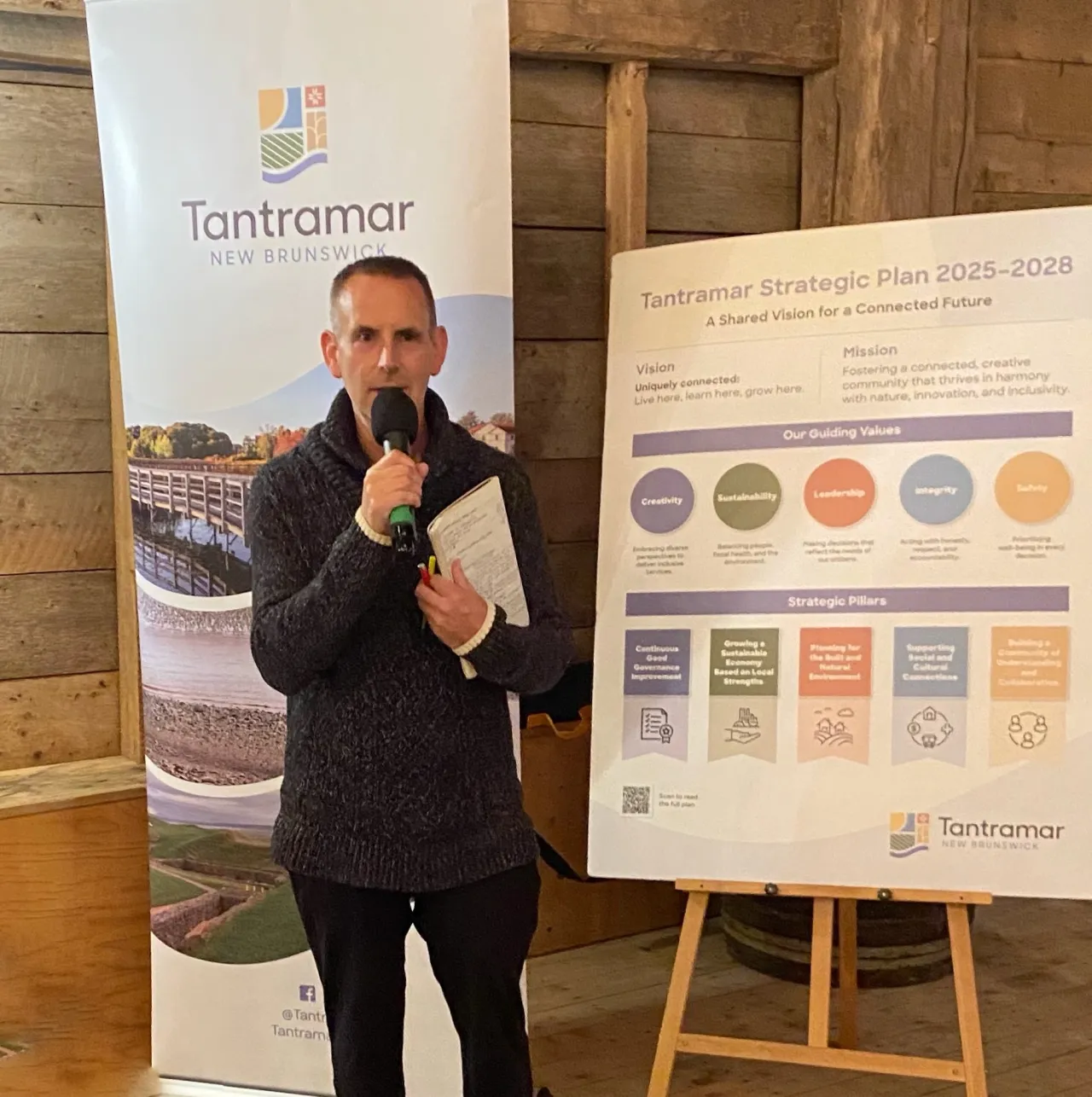
“But the municipality can push and say, ‘Look, we need something done,’” he said. “I can contact ELG (environment & local government) and say, ‘What can be done if the water is all gone, who’s responsible, who’s going to pay for it, who’s going to make sure that people are OK?’”
Black added he guesses that the province would probably say to take the issue up with PROENERGY, but that the town could keep pushing and say that’s not good enough.
“I know that doesn’t answer the question particularly, but at least from the government side of things, there are opportunities for us to be able to reach out,” he said.
Sackville resident Meredith Fisher called on everyone present to set a deadline of January 1st to gather all the research and information needed to oppose the gas plant.
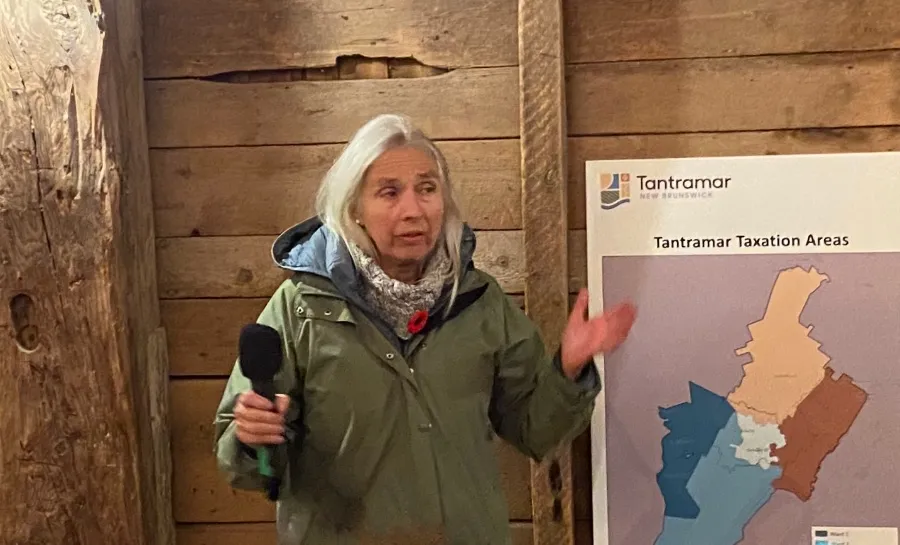
“Do we want to live in an environment that’s compromised?” she asked.
“No, no, no,” members of the audience called out.
“Does anybody want their children and grandchildren and our environment here compromised?” Fisher asked again to another chorus of “nos.”
“Make the deadline January 1st, we collect all our information,” she said.
“This is going to change everything. Is that what we want here? We don’t want it. I’m sure we don’t want it.”
Bruce Wark worked in broadcasting and journalism education for more than 35 years. He was at CBC Radio for nearly 20 years as senior editor of network programs such as The World at Six and World Report. He currently writes for The New Wark Times, where a version of this story first appeared on November 7, 2025.

